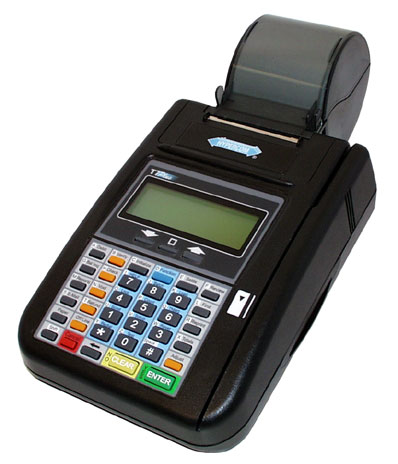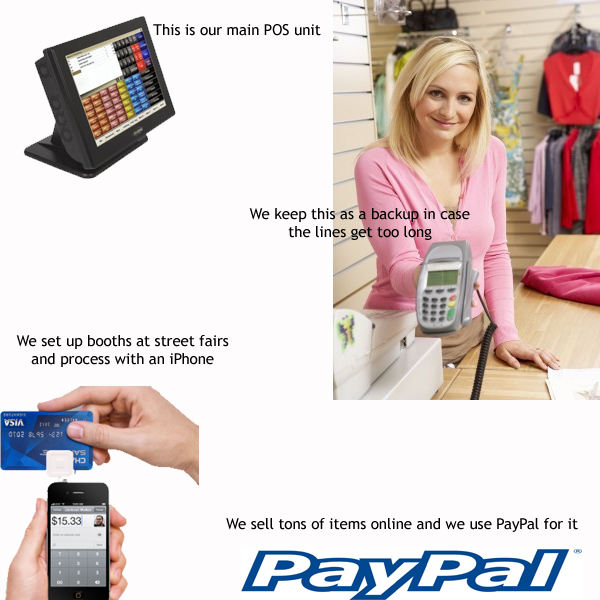Merchant Hash Advance
July 16, 2011
Short on capital? Your business may benefit from a Merchant ‘Hash’ Advance. Restaurants, retail stores, and auto repair shops can easily obtain funding, but medical marijuana dispensaries need love too.
A few cannabis related deals have floated around the Merchant Cash Advance (MCA) industry before, but rarely do they close. At best they elicit a few chuckles from underwriters, who will likely make a few juvenile jokes before turning down a viable, serious, and legal business. The store owners walk away frustrated but neither side is to blame.
In states like New York, where many MCA powerhouses reside, marijuana of any kind is illegal. That makes the sale of it for medicinal purposes in states where it’s legal a foreign concept. We spoke to an underwriter of one Long Island, NY based MCA firm who shared this: “I’ve eaten dinner at a restaurant and I’ve bought flowers from a florist. I understand what makes both businesses tick. I’ve never been to, nor met anyone who has been to a medical marijuana dispensary. I don’t really know what the transaction is like, what risks they face, what their profit margins should be. It’s a big unknown. Is it easy for a dispensary to lose their license and suddenly go out of business? Are there laws that prohibit outside financing? Do we need to keep tabs on where they obtained their inventory from? We typically call a restaurant’s vendors prior to funding to ensure they’re in good standing. I would feel a little weird calling up a weed farm for a reference.”

And he’s not the only one that feels that way. Banks do too. Funding aside, evidence shows cannabis related businesses stuggle to fulfill basic needs such as opening a bank account or accepting credit cards. According to a report by creditcards.com, it’s not uncommon for their checking accounts to be closed without warning, sending the business scrambling for help elsewhere.
But the situation isn’t all grim. We interviewed Nick Emerson, the Managing Director of 420 Card Processing in Campbell, CA (420 CP), a firm that’s changing it all. 420 CP not only provides card acceptance services to medical marijuana dispensaries but can also connect them with access to capital.
Using the concept of MCA, 420 CP and their funding partner will provide actual loans based on credit/debit card processing volume It’s a joint partnership. (Sorry couldn’t resist!). And there’s great news. The typical easy criteria that made traditional MCAs so popular still applies. So long as the license to sell medical marijuana can be proven, dispensary owners have the same odds of being approved as a restaurant would.
So the oportunity is there and the target market is bigger than most people think. According to Nick, “Medical marijuana is legal in sixteen states and DC to the best of our knowledge. Those states are: AK, AR, CA, CO, DC, DE, HI, ME, MI, MT, NV, NJ (still pending), NM, OR, RI, VT and WA. Some of these states are in the throes of evaluating how to implement the ballot measures that were passed and they do not all enjoy the same structures.” But once the ground rules are in place, it’s business as usual. “We have faced no problems as our company is dedicated to providing credit card processing services solely to the medical marijuana industry. As you can imagine, our clients love us.”
Add that to the ever growing list that the Mechant Cash Advance concept is being applied to.
- Damaged Credit? Funded!
- Short Time in Business? Funded!
- Restaurants? Funded!
- Retail Stores? Funded!
- Auto Shops? Funded!
- Las Vegas Casinos? Funded!
- E-Bay Stores? Funded!
- Medical Marijuana Dispensaries? Funded!

Short on capital? If you accept electronic payments, someone somewhere is willing to provide cash against those future sales. No matter what you do…
– The Merchant Hash Advance Resource
###
About 420 Card Processing
420 Card Processing was founded by card processing professionals, with decades of combined experience, who are committed to equal access and opportunity for those involved in all aspects of providing medical marijuana to patients in states that have legalized its use. 420 Card Processing provides services to retailers, wholesalers, suppliers of gardening equipment, and physicians. 420 Card Processing is a member of Americans for Safe Access, California NORML and the National Cannabis Industry Association.
For more information on obtaining a merchant account or funding from 420 Card Processing, contact Nick Emerson:
Sales@420cardprocessing.com
(800) 579-1675900 E. Hamilton Ave.
Suite 100
Campbell, CA 95008
Merchant Cash and Capital Raises the Stakes
July 8, 2011
Lately we’ve had an obsession with video marketing in the Merchant Cash Advance space :
- Our Favorite Merchant Cash Advance Commercial
- Do the Merchant Cash Advance Dance Video
- Bank Cash Flow Program
New York City based Merchant Cash and Capital raised the stakes yesterday with the release of their new nifty commercial that’s currently available on Youtube. Different from the traditional low budget, stock footage, do it yourself home videos that seem to drag down the value of most mca videos online, this one will definitely keep the viewer engaged. Check it out:
Thumbs up!
Have a unique MCA video? Let us know and we just might share it.
– The Merchant Cash Advance Resource
Yellowstone Capital Has Record Month June 2011
June 30, 2011
From what we’ve heard, June was a pretty fabulous month for the Merchant Cash Advance business. How good is fabulous? According to Yellowstone Capital‘s facebook announcement, they did 435 deals for nearly $7 Million. Holy Smokes!

Great work guys! America’s small businesses are fortunate to have a source of capital.
What was your opinion of June? What’s your outlook for 2011? Write to us at webmaster@merchantprocessingresource.com
Industry Leaders Speak Out on Merchant Cash Advance Syndication
June 30, 2011
Most ISOs have the option and ability to co-fund deals with the funding sources these days, a topic we discussed back in December in: The Direct Funder Model is SOOOO 2009. That was back when everyone was doing it but no one was talking about it. Now everyones talking about it in the latest micro article by ISO & Agent Magazine, Cash Advances: ISOs Can Earn a Piece of the Action. It discusses syndication with the leaders of the industry’s most prominent firms.
Small Business Failure Rates a Data Point for MCA
May 24, 2011
If you’re a Merchant Cash Advance (MCA) firm, you probably already know which regions pose a higher risk of default. CNN recently analyzed a report by Dunn and Bradstreet on states with the highest and lowest business failure rates:
- California (69% higher than the national average)
- Nevada (65% higher than the national average)
- New Hampshire (38% higher than the national average)
- Tennessee (36% higher than the national average)
- Colorado (33% higher than the national average)
- North Dakota (67% lower than the national average)
- Vermont (47% lower than the national average)
- Iowa (40% lower than the national average)
- Wyoming (40% lower than the national average)
- Kansas (39% lower than the national average)
 Small business failure rates rose overall by 40% from 2007 to 2010. That’s an incredible increase but not surprising given the time period. So what does the data mean for an industry focused on banking the unbankable businesses?
Small business failure rates rose overall by 40% from 2007 to 2010. That’s an incredible increase but not surprising given the time period. So what does the data mean for an industry focused on banking the unbankable businesses?
Personal credit scores have been weighted more heavily in MCA underwriting over the last year or so. Once celebrated as credit-blind financing, most funding providers today have minimum score requirements. This began with arbitrary benchmarks such as 500 or 550 but is now resembling a banker’s analysis. “Your client has a 620 FICO but it’s a weak 620 so we’ll pass” is one such phrase that MCA brokers are just beginning to encounter, leaving them stunned and wondering how this product’s high cost seemingly only targets those with excellent credit. This situation has created A Fork in The Merchant Cash Advance Road.
Small business failure doesn’t happen overnight. It begins with a few missed payments. At that point there is either a recovery or a continuation of falling behind. Low credit scores occur in North Dakota and California but a business in North Dakota with 520 FICO is probably more sustainable than one in California with the same score. Therefore those in the lowest failure states should be extended leniency on credit requirements. Afterall, the goal of the MCA industry is to fund sustainable businesses, not those with the best credit report. The two don’t always go hand in hand.
This outlook isn’t new and would probably serve well in a data points based underwiting system. The CEO of Canadian based AdvanceIt was previously cited on this topic, though his firm futher narrows their data points to the city level. Any data that might impact the outcome deserves to be considered, no matter how broad.
The MCA product is most often a purchase of future sales, which does not require conscious payments on the seller’s (business’s) part. A percentage of sales are recovered automatically so the top priority should be to ensure those sales don’t stop.
If you’re a business owner in Iowa (3rd lowest failure rate) with bad credit, don’t get discouraged. You’re still a viable candidate for a traditional MCA. You just need to find the right firm for you. Ask your sales representative what requirements there are and stay away from those that respond with an arbitrary credit score. The smartest firms use data points and data says you’re not that likely to fail…
– The Merchant Cash Advance Resource
Merchant Cash Advance Diminished by Growth of Payment Technologies
May 15, 2011
Technology will be the end of us all
When bank lending dried up, Merchant Cash Advance (MCA) providers fulfilled the need to keep America’s small business owners going strong. By withholding a percentage of each credit/debit card sale automatically, there was no need to worry about a client’s ability to make payments. Without the risk of late payers or non-payers, MCA providers singlehandedly eradicated credit score from the underwriting guidelines. Or so they thought.
Only a small percentage of businesses in default actually close their doors. Circumventing the MCA provider’s merchant processor or incentivizing customers to pay with cash are issues that have plagued the industry for years. While this would constitute a clear breach in the sale of one’s future receivables, it’s not always a deliberate act of malice. However, there is a direct correlation between the frequency of breaches and *surprise* declining credit score.
But in the instances without malice, such as if damaged POS equipment prevents the flow of processing, there’s not much a MCA provider can do other than help fix it. These gaps in collection affect the bottom line and lead to upward pressure on costs or tighter restrictions on approval, two outcomes that nobody wants.
And as if there already wasn’t a strain, changes in payment technology are quickly eroding the MCA industry’s turf. The credit/debit card sales of a business aren’t exactly limited to one of these:

Now there are options, lots of them. In today’s world you can accept electronic payments with almost anything, a conundrum for MCA providers aiming to collect a percentage of all of it. And how about those routine PCI compliance upgrades? There are countless businesses with a basement full of old credit card machines that could be plugged back in, put back into service, and freely used to circumvent their financial obligations.
Take this clothing retailer for example. She qualified for an advance of only $5,000 but when it came time to convert the merchant account, the process wasn’t so easy:

Nearly all of the transactions conducted inside the store happen through the touch screen POS. The merchant statements reflect consistent historical sales of nearly $4,800 per month, instilling the belief that the future won’t be much different. But when the customer lines get too long, there’s a backup credit card terminal that they pull out from under the counter that still has an active account with a previous processor. Around the holidays, they dig out the old Tranz model terminals from the basement and use them too. For street fairs and trade shows, they attach their Square to their iPhone and process on the go. And when it comes to their website and Ebay, PayPal is their preferred method of payment.
This doesn’t mean the touch screen POS won’t continue to see $4,800 worth of action per month, but the situation doesn’t inspire a lot of confidence if the goal is to collect a percentage of their credit/debit card sales. What if they occasionally use Square inside the store? What if phone orders are punched into PayPal? These things may happen inadvertently or simply because their customers demand it.
To firmly secure a purchase of future sales, the MCA provider would need to do the following:
- Convert the touch screen POS system (which will very likely come with a fee from the POS reseller)
- Reprogram their backup terminal
- Reprogram all the old terminals collecting dust in the basement
- Force the return of the Square and replace it with their own iPhone processing attachment
- Delete PayPal from the HTML of the business’s website
- Instruct them to stop conducting business on Ebay
- Cancel the PayPal account altogether and replace with an authorize.net virtual interface or something equivalent

That’s a lot of effort for $5,000 but doing anything less is a gamble. That’s another reason why MCAs are more expensive than bank loans. Without set fixed payments, they are extremely vulnerable to economic ups and downs and now the explosion of payment alternatives.
Rather than stay ahead, the industry is becoming more fractured as evident by the rise of new funding sources such as Kabbage, that lends against future PayPal sales. It’s innovative but vulnerable. Kabbage depends on the success and status quo of PayPal for survival, a characteristic that is not likely to carry them far. Similarly, MCA providers are dependent on withholding a percentage of future sales, an uneasy task in a world where the point of sale itself is changing.
Innovation in the MCA space has gone as far as automated bank debits and a lockbox. One depends on the merchant’s use of a single bank account and the other is equally exposed to the issues we’ve discussed.
Which of course begs the question: If electronic payments are becoming more elusive to capture, how can the MCA industry survive? The obvious answer is to transform the product itself into a loan. Secure it against collateral and have the credit bureaus at your disposal. Breaches will become far less likely and electronic payments less elusive when there are actual consequences involved. It’s a dreaded word and one MCA representatives have spent years avoiding, but according to the state of California, it’s probably a loan already anyway.
As MCA providers struggle to keep up with payment alternatives, banks are wondering when we’ll all wake up from the “it’s not a loan” euphoria. If the goal is to provide capital and get more back, reprogramming a terminal isn’t going to cut it. How many free hours can America Online offer to bring people back to their dialup internet service? Technology changed and the age of AOL ended. So too may the age of Merchant Cash Advance…. at least in its current form.
– The Merchant Cash Advance Resource
The Most Sincere Form of Flattery – MCA Forums News
April 17, 2011
On April 16th, 2011, the MCA Forums announced their plan to expand content beyond the realm of a simple discussion board. Traditionally a place for Merchant Cash Advance industry insiders to converse, it seems the site will be adding “resources.” It’s an interesting word of choice considering there’s already a Merchant Cash Advance Resource, and that’s us. Perhaps they are trying to capitalize on our success since there is no shortage of that word in their public statement. As seen here:
“We would like to thank you for making MCA Forums the largest online community for your Merchant Cash Advance Resources & Merchant Cash Advance Networking! We’d love to hear your feedback. MCA Forums will be adding more valuable content, resources, and upgrades to the MCA Forums over the course of the next few months. Some key items we’d like your feedback on:
- Your ideas and resources you’d like to see on MCA Forums
- Contribute articles and resourceful information our readers would find of value in exchange for FREE backlinks and promotions to your services”
They say imitation is the most sincere form of flattery and we’re happy to see them expand their somewhat popular site. Spreading the word about Merchant Cash Advance, sharing perspective, and providing the most accurate information is key to mainstream acceptance of this financial product. The MCA Forums success should benefit the industry as whole.
Similar to us, but yet strikingly different in the sense that they are revenue driven, whereas we have stuck by our mantra of Free Unbiased Resources. There is a cost to advertise on the MCA Forums. While it’s true, there are a few google banners on our site to cover the cost of web hosting, we remain committed to our independent outlook. It has served us well. Founded more than two years after the Forums, the Merchant Cash Advance Resource ranks better with visitors according to Alexa.
Comparatively, our readers peruse through 6x more pages on each visit, spend more time per page, and are twice as likely to navigate the site beyond the initial page they accessed. With our thousands of visits every month, funding providers, ISOs, and lead sources mentioned throughout our site benefit from click-throughs on a daily basis. we enjoy doing this at no cost to any of the parties involved.
The Merchant Cash Advance Resource is a member of the U.S. Chamber of Commerce, has authored over 100 industry relevant articles, and is proud to provide the public with unbiased information. Other sites may try, but there is only one place to get your “resources,” and that’s here. Thanks for reading!
– The Merchant Cash Advance Resource
Merchant Cash Advance Forums Goes Quiet
March 31, 2011 The Merchant Cash Advance Forums is an old discussion board for those working within or looking into the Merchant Cash Advance industry. On March 25th, 2011 the Forums implemented stricter account policies that now require members to submit detailed information about who they are and who they represent. This includes:
The Merchant Cash Advance Forums is an old discussion board for those working within or looking into the Merchant Cash Advance industry. On March 25th, 2011 the Forums implemented stricter account policies that now require members to submit detailed information about who they are and who they represent. This includes:
- Real name
- Company you work for
- Company’s address
- Your phone number
A public notice on the forums states “For the sake of adding value and integrity to the MCA Forums, an additional layer of moderation as well as basic data collection have been implemented. Members MUST now complete their private profile with their basic contact information. This required information is confidential, and other members will NOT be able to view it. Data collected is NEVER sold to third parties remains strictly confidential.”
And since this went into effect, the bustling discussion board has been for the most part a ghost town. While a few active participants proudly make their company affiliations known, most users hide behind a nickname for privacy. This certainly makes sense from a personal standpoint (the internet is dangerous!), but it also helps protect employers from liability should one of their employees openly discuss their opinions.
For example: John Doe states his affiliation with ABC Funding Co. upon registering with the site and posts “tHe iNdUsTrY iS dOoMeD!” Many of the other forum members may interpret that to mean ABC Funding Co. is in serious trouble or because of the way John Doe posts, that ABC Funding Co. does not employ very intelligent people.
Though there is an explicit promise of confidentiality, this industry has bred many stone cold skeptics over the years. If Facebook can get someone in trouble, anything can.
Of course, we may be wrong completely and the dull conversation could be a result of more time spent working, there being little to talk about, or an unwillingness to talk as the news of what is happening in California spreads.
This is by no means an attack on the MCA Forums. We used to check in on it pretty often. We recommend anyone in the MCA, payments, or banking industry to sign up to for DailyFunder.com now as of 2013. Just be careful. Anything you post on the internet can be linked back to you by someone, somehow.






























